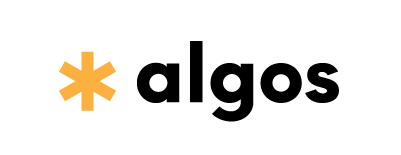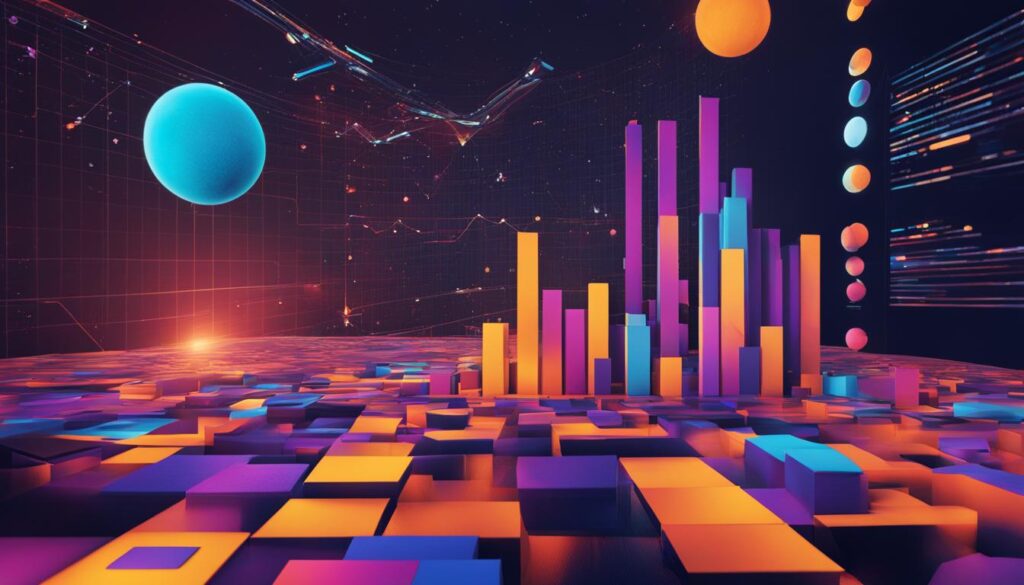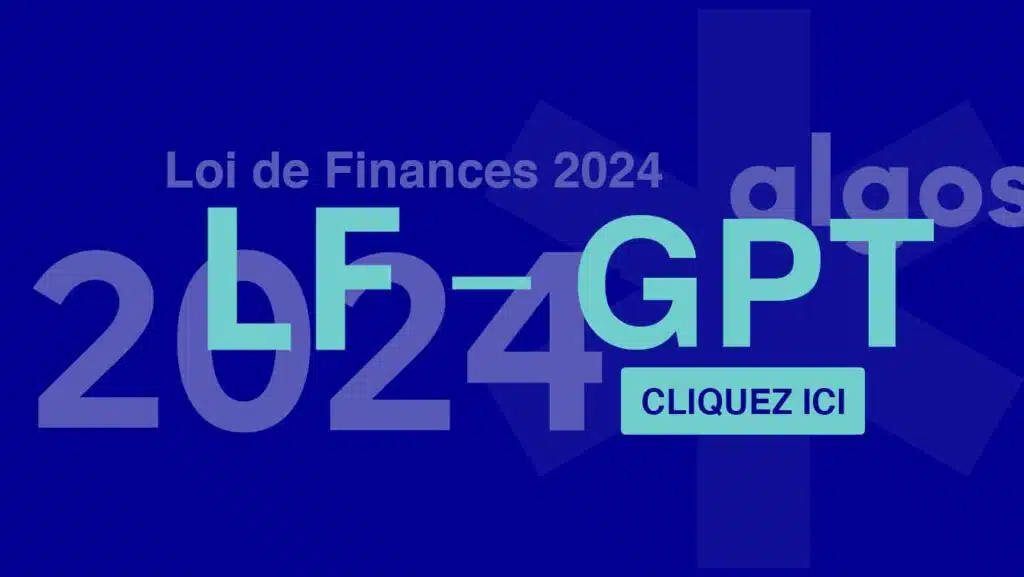THE predictive marketing, integrating artificial intelligence (AI) and predictive analysis of customer behavior, is a growing trend in the field of marketing automation. Thanks to AI, it becomes possible to predict customer actions based on their profiles and their history of interactions with the company. This approach between AI and predictive marketing makes it possible to optimize conversions and sales, by offering hyper-personalized emails and anticipating consumer needs. Algos, with its generative AI software Minevia, offers high-performance solutions in this area, using algorithms of machine learning to predict user behavior and optimize campaigns marketing.
Key points to remember
- AI and predictive analytics help predict customer actions and optimize campaigns marketing.
- THE predictive marketing offers hyper-personalized emails and anticipates consumer needs.
- Algos and its Minevia software use algorithms of machine learning to predict user behavior.
- THE predictive marketing helps optimize conversions and sales.
- Generative AI improves marketing campaigns by anticipating consumer needs.
What is Predictive Marketing?
Predictive marketing is a marketing automation practice that aims to predict customer actions using information collected from their profiles and their history of interactions with the company. Through campaign automation and the integration of artificial intelligence (AI) and predictive analytics, it is possible to anticipate customer expectations and desires, rather than reacting based on their visits to the site. This requires collecting and processing large amounts of customer data, which is made possible by AI and predictive algorithms. machine learning.
Predictive marketing allows businesses to personalize their offers and deliver the right products or services to the right customers at the right time. Using sophisticated algorithms, it is possible to segment customers based on their behaviors and preferences, which helps optimize marketing campaigns and increase conversion rates. Campaign automation allows for targeted and personalized actions, while reducing human error and maximizing resource efficiency.
- Artificial intelligence and predictive analytics are used to predict customer behaviors and optimize marketing campaigns.
- Campaign automation helps anticipate customer needs and deliver personalized offers.
- Predictive marketing helps segment customers based on their behaviors and preferences to optimize marketing campaigns.
- The use of AI and machine learning algorithms makes it possible to collect and process large amounts of customer data.
What are the benefits of predictive marketing?
Predictive marketing offers many benefits to businesses. By using artificial intelligence and predictive analytics, it is possible to anticipate customer needs, optimize marketing campaigns, and improve results. By segmenting customers based on their characteristics and behaviors, it is possible to offer personalized offers and maximize conversion rates. Predictive marketing also saves time by automating certain tasks and optimizing advertising spending.

Predictive marketing, with the integration of artificial intelligence and predictive analysis, represents a real lever for companies to optimize their marketing campaigns and improve results. Thanks to the anticipation of customer needs and the customization of offers, it becomes possible to achieve better conversion rates and customer loyalty. By using techniques such as machine learning, deep learning and the reinforcement learning, it is possible to predict customer behaviors and adapt marketing strategies accordingly. Predictive marketing offers many opportunities to accelerate business growth and improve customer relations.
Difference between Artificial Intelligence (AI), Machine Learning, Deep Learning and Reinforcement Learning
Artificial intelligence (AI) is a branch of computer science that aims to replicate human behavior through computers. Machine learning is an AI technique that uses algorithms to predict events from data. The deep learning is a subcategory of machine learning that allows the algorithm to learn autonomously from raw data. Finally, the reinforcement learning is another AI technique that allows the algorithm to improve itself by interacting with its environment.
- Artificial intelligence (AI): reproduction of human behavior by computers.
- Machine learning: using algorithms to predict events from data.
- THE deep learning : autonomous learning of the algorithm from raw data.
- THE reinforcement learning : improvement of the algorithm by interaction with its environment.
Difference between AI and machine learning
Artificial intelligence is the ability to design computers that mimic human behavior, while machine learning is a specific AI technique that uses algorithms to predict events from collected data.
Difference between machine learning, deep learning and reinforcement learning
Machine learning is an AI technique that allows the algorithm to learn from data and predict events. Deep learning is a subcategory of machine learning that allows the algorithm to learn autonomously from raw data, while reinforcement learning allows the algorithm to improve itself by interacting with its environment.
AI and predictive marketing: Explanations
Artificial intelligence (AI) is an innovative technology that is revolutionizing the world of digital marketing. It allows companies to analyze large amounts of data and predict the future trends consumers. But how does it actually work in the context of marketing?
AI uses sophisticated algorithms to “think” and learn from structured data. In marketing, this means it can be used to segment customers more accurately, personalize user experiences in real time, and optimize advertising campaigns. AI also helps predict customer behavior and recommend relevant marketing actions.
For example, AI can analyze a consumer’s past purchasing habits and predict which products they will be interested in in the future. It can also analyze demographic and behavioral data to create personalized ads that target specific customers. With AI, marketers can automate tasks, optimize the customer experience, and analyze customer sentiment to improve their marketing strategies.
What are the benefits of AI in marketing?
- Personalization of customer experience
- Optimization of the advertising campaigns
- Customer Sentiment Analysis
- Automation of marketing tasks
How is AI used in advertising campaigns?
AI can be used to optimize the advertising campaigns by analyzing customer data and identifying behavioral patterns. Marketers can use this information to create targeted, personalized ads that are more likely to capture consumers’ attention. AI can also help optimize the allocation of advertising budgets by identifying which channels generate the best results. By using AI in advertising campaigns, businesses can increase their ROI and achieve their marketing goals more effectively.
The advantages of Machine Learning in predictive marketing
Machine learning offers many advantages in the field of predictive marketing. With this powerful technique, companies can use algorithms to analyze large amounts of data and predict consumer behavior. This makes it possible to recommend personalized products based on customer profiles, identify complementary products for a purchase, and analyze customer satisfaction to reduce marketing pressure.
One of the main strengths of machine learning is its ability to segment customers based on their behaviors and preferences. This allows businesses to optimize their marketing campaigns by specifically targeting customer segments that are most likely to convert. For example, by using machine learning algorithms, an e-commerce business can predict which products a customer is most likely to buy and send them personalized recommendations, increasing the chances of conversion.
By using machine learning, businesses can also automate certain marketing tasks, saving time and optimizing ad spend. For example, by analyzing customer data, a machine learning algorithm can automatically decide the best times to send promotional emails, maximizing customer engagement and conversion rates.
Here are some key benefits of machine learning in predictive marketing:
- Product Recommendations personalized according to customer profiles
- Identification of complementary products to increase sales
- Customer segmentation to optimize marketing campaigns
- Automating marketing tasks to save time and optimize ad spend
In summary, machine learning is a valuable technique in the field of predictive marketing. By using intelligent algorithms, it allows companies to predict consumer behaviors, segment customers, and optimize marketing campaigns. By fully exploiting the benefits of machine learning, companies can improve their results, increase their conversion rates, and retain their customers more effectively.
The advantages of Deep Learning in predictive marketing
Deep learning is an advanced machine learning technique that has many applications in the field of predictive marketing. With this approach, it is possible to improve the recommendation of personalized products by using algorithms capable of learning autonomously. The deep learning algorithm analyzes raw data to develop its own operating logic and refine its predictions over time.
This approach provides increased accuracy in the product recommendations, taking into account more complex and subtle factors than other machine learning techniques. By using deep learning, marketers can further optimize marketing campaigns by delivering more relevant offers and targeting customers with greater precision.
Deep learning also enables new opportunities to be explored in terms of marketing campaign optimization. Through in-depth data analysis, deep learning algorithms can identify trends and patterns that other predictive analytics techniques miss. This deep knowledge of customer behavior enables marketing strategies to be adapted in real time and achieve better results.
The benefits of Deep Learning in Predictive Marketing:
- Improved personalized product recommendation
- Increased accuracy in predicting customer behavior
- Campaign optimization real time marketing
- Identification of complex trends and patterns
By using deep learning in predictive marketing, businesses can maximize the effectiveness of their campaigns, build customer loyalty, and increase conversion rates.
The Advantages of Reinforcement Learning in Predictive Marketing
The use of Reinforcement Learning in the field of predictive marketing offers many advantages to companies. This artificial intelligence technique allows to automatically improve predictions based on interactions with the real context. By adjusting the operating logic of the algorithm in real time, it becomes possible to optimize marketing campaigns and obtain better results.
With Reinforcement Learning, predictions can be improved based on real customer behaviors. For example, if an email recommendation does not match the customer's real actions, the algorithm will try to improve for future recommendations. This approach allows marketing strategies to be adapted in real time, maximizing campaign effectiveness and increasing conversion rates.
The benefits of Reinforcement Learning in Predictive Marketing:
- Automatically improve predictions based on actual results
- Campaign optimization real time marketing
- Increased conversion rates
- Personalization of offers based on actual customer actions
By using Reinforcement Learning in predictive marketing, companies can benefit from continuous improvement of their predictions and campaign optimization in real time. This approach allows to obtain better results and to optimize the customer relationship, by offering personalized offers based on the real needs of consumers.
Predictive Analytics in Marketing
Predictive analytics plays a crucial role in the field of marketing. With this technique, it is possible to anticipate customer needs and personalize offers based on their behaviors and preferences. By using statistical models and machine learning algorithms, predictive analytics makes it possible to predict customer behaviors and optimize marketing campaigns.
One of the applications of predictive analytics in marketing is the customer segmentation. By grouping customers based on their characteristics and behaviors, it becomes possible to offer offers tailored to each customer segment. This approach helps improve the relevance of marketing messages and maximize conversion rates.
Using predictive analytics, it is also possible to personalize offers based on individual customer preferences. By analyzing behavioral and transactional data, it becomes possible to understand the specific needs of each customer and offer products or services that match their expectations. This customization of offers helps to strengthen customer engagement and improve customer satisfaction.
Predictive Analysis in Marketing:
- Allows you to anticipate customer needs
- Optimizes marketing campaigns
- Customer segmentation for customization of offers
- Uses statistical models and machine learning algorithms
The Benefits of Predictive Marketing
Predictive marketing offers many benefits to businesses. By using artificial intelligence and predictive analytics, it is possible to anticipate customer needs, optimize marketing campaigns, and improve results. By segmenting customers based on their characteristics and behaviors, it is possible to offer personalized offers and maximize conversion rates. Predictive marketing also saves time by automating certain tasks and optimizing advertising spending.
One of the main benefits of predictive marketing is its ability to predict customer behaviors. With artificial intelligence and data analysis, companies can anticipate consumer actions and adapt their marketing strategies accordingly. This allows them to offer personalized offers, improve user experience, and optimize conversion rates.
Another advantage of predictive marketing is customer segmentation. By analyzing customer data, it is possible to divide the database into distinct segments based on customer characteristics and behaviors. This allows targeting offers and marketing messages according to the preferences of each segment, increasing the chances of conversion and loyalty.
The main advantages of predictive marketing:
- Predicting customer behaviors
- Offer personalized offers
- Segment customers to target offers
- Optimize conversion rates
- Save time by automating certain tasks
- Optimizing advertising spending
With predictive marketing, businesses can leverage advances in artificial intelligence and predictive analytics to improve their marketing campaigns. By anticipating customer needs, delivering personalized offers, and optimizing conversion rates, predictive marketing helps businesses stay competitive in an ever-changing marketplace.
Predictive Marketing Techniques
Predictive marketing uses different techniques to anticipate customer behaviors and optimize marketing campaigns. Here are some of the key techniques used in predictive marketing:
- Customer segmentation: There customer segmentation is the practice of grouping customers based on their characteristics and behaviors. This allows businesses to personalize offers and marketing messages based on the specific needs of each segment. By using customer segmentation, businesses can effectively target certain categories of customers and improve conversion rates.
- Appetite scores: THE palatability scores are used to assess customer interest in a specific offer. Scores are calculated based on customer behavioral and transactional data. This technique allows personalized offers to be sent to customers who are most likely to accept them, increasing the chances of conversion.
- Trend prediction: There trend prediction enables companies to anticipate market changes and adapt their strategies accordingly. By using statistical models and machine learning algorithms, companies can predict emerging trends and make strategic decisions to stay competitive.
These techniques are an integral part of predictive marketing and enable companies to maximize their marketing impact by anticipating customer needs, personalizing offers and staying ahead of market trends.
Example application: Personalization of offers
One of the most common applications of predictive marketing is the personalization of offers. Using customer segmentation techniques, palatability scores and of trend prediction, businesses can tailor offers to each customer's specific needs. For example, an online clothing company might use customer segmentation to identify customers interested in sportswear, and then use the palatability scores to offer personalized offers on products in this category. This approach helps improve the customer experience, increase conversion rates and build customer loyalty.
In conclusion, the predictive marketing techniques such as customer segmentation, appetite scores and trend prediction are essential to optimize marketing campaigns. By using these techniques, companies can anticipate customer needs, personalize offers and remain competitive in the market.
Customer case of a campaign in Predictive Analysis
A concrete illustration of the effectiveness of predictive analytics in marketing is the case of an online tire sales company, Allopneus. This company used predictive analytics to target customers with the highest chances of converting and offer them an exclusive offer. Thanks to this campaign, Allopneus recorded a significant increase in the conversion rate of targeted customers and generated significant additional revenue.
Predictive analytics allowed Allopneus to segment its customers based on their characteristics and purchasing behaviors. This allowed the company to personalize its offers and provide product recommendations tailored to the needs and preferences of each customer segment. The results have been tangible, with increased sales and a Conversion rate optimization.
Optimizing Marketing Campaigns Through Predictive Analytics
- Predictive analytics helps identify customers who are most likely to convert, based on statistical models and the exploitation of customer data. This allows marketing efforts to be targeted to the most promising customers, resulting in optimized marketing campaigns and more efficient use of resources.
- By segmenting customers based on their behaviors and preferences, predictive analytics helps personalize offers and product recommendations. This drives customer engagement and increases the chances of conversion.
- By anticipating customer actions and needs, predictive analytics helps plan and optimize marketing campaigns. This helps achieve better results, both in terms of conversion rates and return on investment.
The case of Allopneus perfectly illustrates the effectiveness of predictive analysis in the field of marketing. By using this technique, companies can improve their conversion rates, optimize their marketing campaigns and increase their revenues. Predictive analysis allows to better understand customer behaviors and to personalize offers accordingly, which is a real competitive advantage in an increasingly competitive market.
Conclusion
Artificial intelligence and predictive marketing offer many opportunities to optimize marketing campaigns and improve business results. With predictive analytics and customer segmentation, it becomes possible to anticipate customer needs and personalize offers to maximize conversion rates.
Marketing campaign optimization relies on the use of techniques such as machine learning, deep learning, and reinforcement learning. These methods make it possible to predict customer behaviors and adapt strategies accordingly, thus providing a more targeted and effective approach.
By using artificial intelligence and predictive marketing, companies can improve their customer relationships and build customer loyalty. Anticipating needs, personalizing offers and optimizing campaigns help create unique customer experiences and maximize results.
In conclusion, the use of artificial intelligence and predictive marketing represents a real advantage for companies wishing to accelerate their growth and optimize their campaigns. By leveraging data and adopting a proactive approach, companies can stand out from the competition and offer exceptional customer experiences.
FAQ
What is predictive marketing?
Predictive marketing is a marketing automation practice that aims to predict customer actions using information collected from their profiles and their history of interactions with the company.
What is the difference between AI, machine learning, deep learning and reinforcement learning?
AI refers to the ability to design computers that mimic human behavior. Machine learning uses algorithms to predict events based on data collection. Deep learning allows the algorithm to learn on its own and improve its predictions over time. Reinforcement learning allows the algorithm to improve based on interactions with its environment.
What are the advantages of machine learning in predictive marketing?
Machine learning enables personalized product recommendations, customer satisfaction analysis, and optimization of marketing campaigns based on customer behavior.
What are the advantages of deep learning in predictive marketing?
Deep learning helps improve personalized product recommendations by using raw data analysis and optimizing marketing campaigns.
What are the advantages of reinforcement learning in predictive marketing?
Reinforcement learning helps improve predictions by modifying the algorithm's operating logic based on actual results and optimizing marketing campaigns in real time.
What is the role of predictive analytics in marketing?
Predictive analytics helps anticipate customer needs, personalize offers and optimize marketing campaigns based on customer characteristics and behaviors.
What are the benefits of predictive marketing?
Predictive marketing helps optimize marketing campaigns, increase conversion rates, personalize offers, and save time by automating certain tasks.
What are the techniques used in predictive marketing?
Techniques used in predictive marketing include customer segmentation, appetite scoring, and trend prediction.
Can you give a concrete example of a predictive analysis campaign?
Yes, for example, Allopneus used predictive analytics to target customers most likely to convert and offer them an exclusive deal, resulting in a significant increase in conversion and revenue.
How can AI and predictive marketing optimize marketing campaigns?
AI and predictive marketing make it possible to anticipate customer needs, personalize offers, optimize marketing campaigns and improve customer relations.









